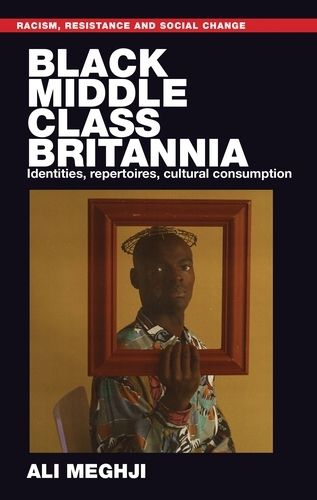Readings Newsletter
Become a Readings Member to make your shopping experience even easier.
Sign in or sign up for free!
You’re not far away from qualifying for FREE standard shipping within Australia
You’ve qualified for FREE standard shipping within Australia
The cart is loading…






This book analyses how racism and anti-racism affects Black British middle-class cultural consumption. In doing so, it challenges the dominant understanding of British middle-class identity and culture as being ‘beyond race’.
Paying attention to the relationship between cultural capital and cultural repertoires, Meghji argues that there are three modes of black middle-class identity: strategic assimilation, ethnoracial autonomous, and class-minded. Individuals within each of these identity modes use specific cultural repertoires to organise their cultural consumption. Those employing strategic assimilation draw on repertoires of code-switching and cultural equity, consuming traditional middle-class culture to maintain equality with the white middle-class in levels of cultural capital. Ethnoracial autonomous individuals draw on repertoires of ‘browning’ and Afro-centrism, self-selecting traditional middle-class cultural pursuits they decode as ‘Eurocentric’ while showing a preference for cultural forms that uplift black diasporic histories and cultures. Lastly, class-minded individuals draw on repertoires of post-racialism and de-racialisation, polarising between ‘Black’ and middle-class cultural forms. Black middle class Britannia examines how such individuals display an unequivocal preference for the latter, lambasting other black people who avoid middle-class culture as being culturally myopic or culturally uncultivated. – .
$9.00 standard shipping within Australia
FREE standard shipping within Australia for orders over $100.00
Express & International shipping calculated at checkout
This book analyses how racism and anti-racism affects Black British middle-class cultural consumption. In doing so, it challenges the dominant understanding of British middle-class identity and culture as being ‘beyond race’.
Paying attention to the relationship between cultural capital and cultural repertoires, Meghji argues that there are three modes of black middle-class identity: strategic assimilation, ethnoracial autonomous, and class-minded. Individuals within each of these identity modes use specific cultural repertoires to organise their cultural consumption. Those employing strategic assimilation draw on repertoires of code-switching and cultural equity, consuming traditional middle-class culture to maintain equality with the white middle-class in levels of cultural capital. Ethnoracial autonomous individuals draw on repertoires of ‘browning’ and Afro-centrism, self-selecting traditional middle-class cultural pursuits they decode as ‘Eurocentric’ while showing a preference for cultural forms that uplift black diasporic histories and cultures. Lastly, class-minded individuals draw on repertoires of post-racialism and de-racialisation, polarising between ‘Black’ and middle-class cultural forms. Black middle class Britannia examines how such individuals display an unequivocal preference for the latter, lambasting other black people who avoid middle-class culture as being culturally myopic or culturally uncultivated. – .